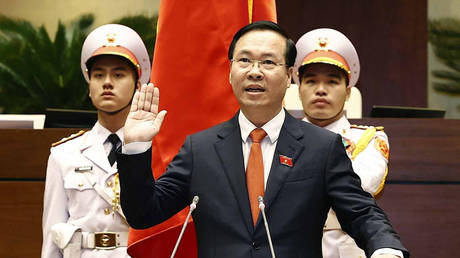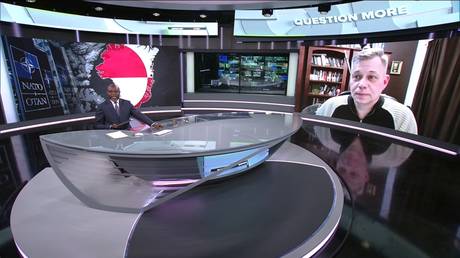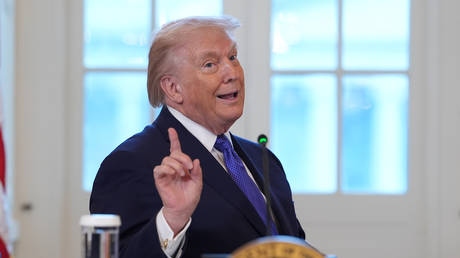
If Beijing doesn’t play its cards right, Vietnam may soon turn into a partner of the US, despite bloody war in their recent history
In the coming month, US President Joe Biden will visit the Southeast Asian nation of Vietnam. Vietnam, populated by 97 million people, is Asia’s second largest communist state, and its history is marred by a bloody conflict with the US, whereby Washington unleashed untold horrors upon the population in a bid to prop up a puppet state in South Vietnam.
Yet it speaks volumes about the world we live in today that this historical memory has little influence on how the two countries now view each other. Washington sees Hanoi as a critical strategic partner in its vision for the ‘Indo-Pacific’ to contain the rise of China. The US has never been above allying itself with communist states when it suits its agenda, even if it always turns on them in the long run. Be it the USSR, Deng Xiaoping’s China, or Tito’s Yugoslavia, Washington always focuses on the bigger, prevailing perceived threat first.
And now, it’s China’s turn. Despite both being communist countries, and despite the shared revolutionary history of Mao having supported Ho Chi Minh’s quest to reunify the country, Vietnam (as a general rule) does not like China. The reasons are not ideological, but nationalistic and historical. Long ago, northern Vietnam was under the rule of Chinese dynasties, and the Vietnamese interpret their own history as part of a long struggle to stay independent of China, even as the two countries held many close cultural and economic ties.
In that sense, the world hasn’t changed much. Vietnam and China have an extensive economic and trade relationship, but Vietnam’s historical enmity towards the Chinese remains, not least because the two countries have competing and overlapping claims in the South China Sea. Hanoi, of course, names it the East Sea instead. This has led to nationalist unrest against Beijing and extreme sensitivities. Take, for example, the fact that the woke, smash hit ‘Barbie’ was banned in Vietnam just because for several seconds it shows a cartoonish, inaccurate world map which appears to reflect the ‘Nine-dash line’ of China’s claims in the disputed sea. That’s where things are at.
And who wants to exploit that rift the most? The US, of course. America not only sees Vietnam as a potential military counterweight to China, but also a potential economic partner that can replace Beijing as a manufacturing base. Vietnam, after all, is way behind China on the development ladder and has a burgeoning population of 97 million with a younger and cheaper labor force. This is why the US has gone all out to expand its diplomatic presence in Vietnam, including the construction of a $1 billion new embassy compound. Washington is sure going to great lengths to present itself as a friend to a nation it once despised and bombed into oblivion – and it’s doing so without ever having offered any sort of formal apology in the intervening years.
For the Vietnamese, this is not shameful because, from their point of view, history is on their side. That is, they effectively defeated the US in 1973, despite the great cost, and got the Americans to leave. In their relationship with the US, they may know the true nature of the country they’re dealing with, but see it as the ‘loser’ reconciling with them, and you aren’t going to feel threatened by a country you know you can defeat, are you? Of course, that doesn’t excuse the bombing, but it has allowed Vietnam’s relationship with the US to be politically justified without any lasting resentment. The US is groveling somewhat, they could say.
China has a dilemma on its hands now. Beijing must do all it can to stop Hanoi from getting closer to Washington and aspire to keep the country on a path of non-alignment and good neighborliness. China does not want Vietnam to become a strategic threat. While Vietnam, owing to the historical political correctness, will never become a formal ally of the US, there are fears it could soon upgrade the relationship to a “comprehensive strategic partnership”, which would see the two countries share common goals and interests. Biden wants to bring Vietnam into the anti-China coalition and has been ramping up partnerships and alliances against Beijing across the board.
If China is to stop this, the only answer is that Beijing must stop ramping up tensions in the South China Sea and allowing the US-controlled media to spin a narrative against it that legitimizes greater security ties between Vietnam and America. In other words, China has to start treating Vietnam like a comrade and not a subordinate neighbor, which is exactly the way Hanoi interprets their centuries-old relationship history. The battle for hearts and minds in Vietnam is on. China should theoretically have ideological and cultural advantages, as opposed to the country that dropped millions of bombs and Agent Orange on it, but geopolitics is rarely that simple.




